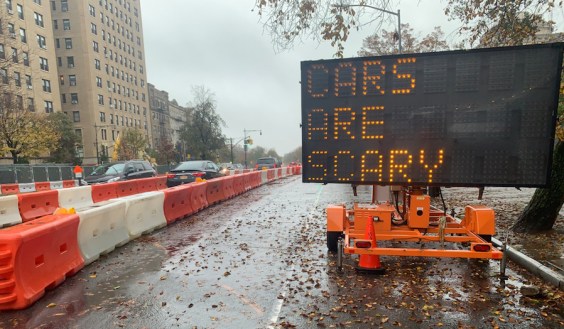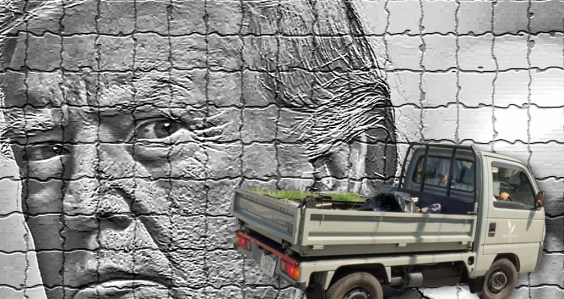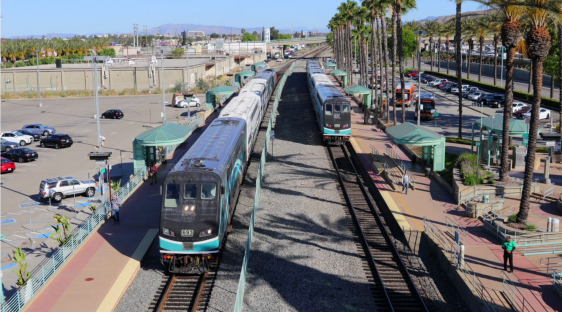 Flickr photo: Justin.Beck
Flickr photo: Justin.Beck The MTA is proposing broad-ranging service cuts to Muni in order to close a $16.9 million projected budget gap through the end of the fiscal year. The cuts - far greater in scope than the service changes implemented in December - will reduce frequencies on every Muni line and, if they're approved by the agency's Board, will be coupled with fare increases on services including the F-line, express routes, and cable cars. Numerous additional changes are proposed, including charging MTA employees for parking and seeking labor concessions.
After alluding to possible further service changes on several occasions, the MTA made the proposal for cuts official with the release of a budget document (PDF) that will be presented at Tuesday's MTA Board meeting. Under the proposal, peak service headways would increase by somewhere in the range of one to two minutes on rapid and express bus lines, one to five minutes on local bus lines, and five to ten minutes on community bus lines, with rapid rail frequencies unchanged. Midday and late evening headways would increase by anywhere from one to five minutes on rapid and express bus lines, one to five minutes on rapid rail lines, two to ten minutes on local bus lines, and five to ten minutes on community bus lines.
MTA spokesperson Judson True said the cuts would go in place as soon as May 1 if the agency's Board approves them at their March 2 meeting. All told, the cuts would save the agency $4.8 million in the current fiscal year, and $28.5 million annually, by eliminating 313,000 service hours each year.
"The economic downturn has taken a tremendous financial toll on the
SFMTA and transportation agencies around the country," said MTA
Executive Director Nat Ford. "There are no easy solutions."
The rest of the $16.9 million gap would be made up with a package of changes that includes a $3 increase to F-Line historic streetcar cash fares, new requirements for express bus and cable car riders to use a premium $70 monthly pass instead of the cheaper $60 pass, increases in discount pass prices to $30, and an increase in the residential parking permit fee to $96 from $76. The agency is also hoping for labor concessions that could save $10 million annually and $700,000 this budget year, which would also include changes to work rules.
MTA employees would start paying for parking at work, bringing in $200,000 for the agency this fiscal year, and Muni customers would pay an credit card fee for online transactions, while customers visiting the MTA's customer service center would pay transaction fees for services that are also available online. Citation costs would also increase by $1.50 across the board, and the MTA will seek $7 million in Prop K sales tax funds from the SFCTA "maintenance and state of good repair to ensure FTA compliance and system performance," according to the budget presentation.
The glaring omission from the proposals was an extension of parking meter hours, something MTA staff presented on last year, and which a staff study said could bring in millions to the agency while improving the city's parking management. "It's not part of the staff recommendation for Tuesday," said True.
The proposed cuts are the second round of the agency's effort to address a projected mid-year budget shortfall that started at about $45 million. Staff whittled that down to the current $16.9 million figure through measures that included cutting 110 positions, leaving another 140 positions unfilled, using federal stimulus funds to cover operating costs, and making other cuts that didn't require authorization from the MTA Board.
This round of proposed changes will require MTA Board approval, and some of the changes require Board of Supervisors approval. None are a done deal, so there should be a significant amount of
debate in the coming months on how the MTA will proceed. Some further
details of how each line will be affected should be available on
Tuesday, said True.
The budget proposals will be presented at the next MTA Board meeting on Tuesday, January 19, at 2 p.m. in San Francisco City Hall, Room 400. The budget discussion is Item 11 on the agenda, and there will be a chance for the public to comment.





